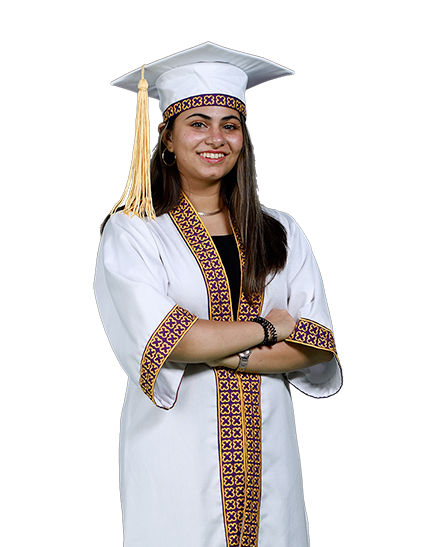
HAYA HABIB MOOSA
Aspiration Statement
I am inclined towards research and development as well as Human Resources and Project Management. I also want to pursue my postgraduate studies in International Relations or Anthropology. My other passions include sports like basketball and travelling.
Core Skills
- Qualitative Research Skills
- Writing Skills in English
- Microsoft Office
- Microsoft Excel
- Project Management/Planning
Academic Awards / Achievements
- Dean's Wall in 2017 (Nixor College)
- Golden Pen Award in 2016 (The CAS School)
Experience
Leadership / Meta-curricular
- Design Researcher, Spring 2022, playground
- Volunteer of the Year 2017, Taleem Sab Kay Liye
Internship / Volunteer Work
- Assistant Manager Donor Services (Global Support) - TCF (Aug 2022 - Present)
- Summer Intern Start - Citizens Archive of Pakistan (June 2021 - July 2021)
- Research Intern - Shehri-CBE (February 2021- March 2021)
- Research Intern - NOWPDP (June 2019- July 2019)
- Director of Academics - Taleem Sab Kay Liye (May 2017- May 2018)
Publications / Creative Projects
- Used the human centered design to develop a prototype of an app to improve the educational experience of underprivileged communities in Fall 2020
- Attended the 9th International Conference on Endorsing Health Science Research to present a research paper on Productivity Levels among Undergraduates during COVID-19 outbreak in Spring 2020
Final Year Project
Project Title
Youth's Perspective on the Nation's Independence: A Study on the Intergenerational Trauma Caused by the 1947 Partition
Description
Since partition, India and Pakistan have fought a number of wars against each other, the consequences of which still affect us today, whether we realize it or not. Inter-generational trauma is one such concept that plays a huge role in the daily lives of today's generations that have families split across the borders. This study interviewed two young adults one male and one female. The major theme that both participants tended to talk about was the effects of this border divide on a personal and family level. The findings do confirm the existence of inter-generational trauma and how it plays a great role in impacting our ability to build and sustain meaningful relations with people. With further research in the future there is hope to find ways to decrease the role that inter-generational trauma plays in the subconscious of most generations and to heal as a society.